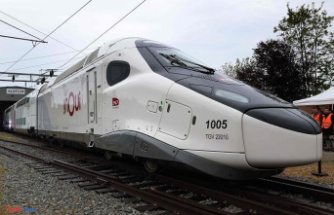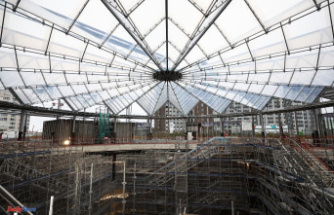CDU Vice Jens Spahn criticizes the government for its behavior in the energy crisis. In the "Zero Hour" podcast, Spahn talks about the lack of support for the middle class, the increasing anger on the street and why he doesn't want to say anything about his successor Karl Lauterbach.
CDU Vice Jens Spahn is calling on the federal government to come up with a long-term concept to deal with the energy crisis in private households and industry. "We need planning that goes beyond perseverance slogans," said Spahn in the "Zero Hour" podcast. "You have to expect that from the government of an industrialized country."
The CDU politician, who is responsible for business and energy on the board of his party, criticized the previous aid packages as piecemeal that did not help the lower middle class in particular: "There are people who cannot pay the gas and electricity prices, they have the feeling that they are neither heard nor seen, that they are not part of the debate," said Spahn. "Social transfer and big corporations, and somehow nothing happens in between."
The deputy CDU chairman admitted that money had already flowed to alleviate the high energy costs and would continue to flow. However, he misses planning that goes beyond the next few months. This includes a program for permanently calculable electricity prices. "If we don't give this security for after the crisis, then certainly no one will invest in Germany," said Spahn. "You can't plan how Putin will behave. The fact that we have to replace 500 terawatt hours is something you can work with mathematically." The government is responsible for giving companies and households a longer-term perspective.
In a current book, Spahn deals with his time as Minister of Health and also with the harsh hostilities that he himself was exposed to. A phenomenon that he is rediscovering in the current situation in the country: "In the current crisis, some of the same people are becoming radicalized," he said. "I always ask myself: What is it that makes someone suddenly feel such hatred?" Society is increasingly crumbling into "communication bubbles" that make debate more difficult.
Listen to the new episode of "The Zero Hour":
All episodes can be found directly on Audio Now, Apple or Spotify or via Google.












